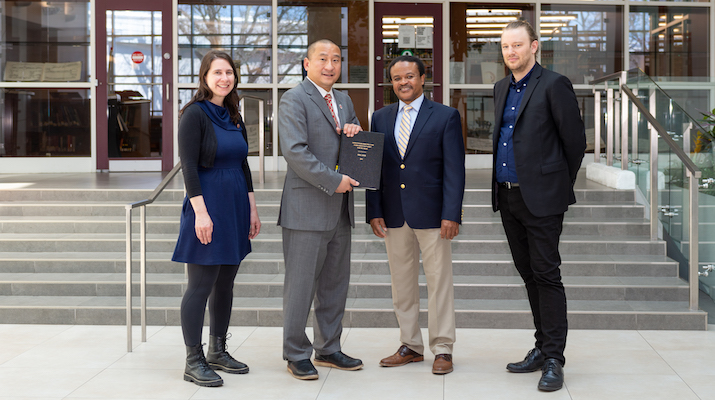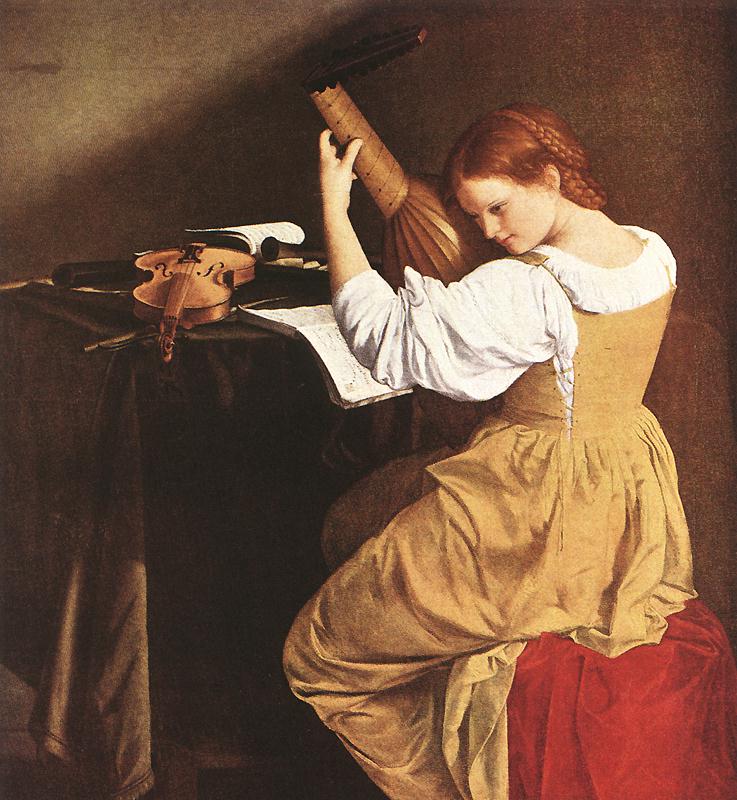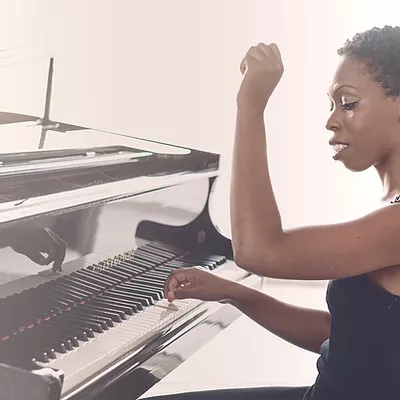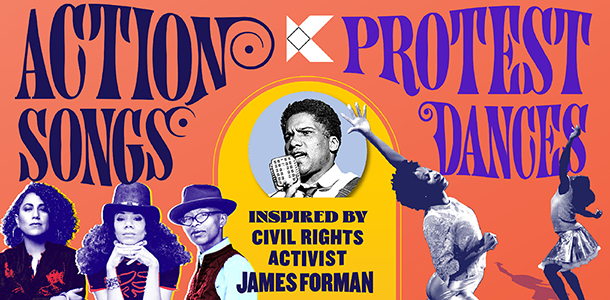
Ahead of the World Premiere of Action Songs/Protest Dances at the Kupferberg Center for the Arts, the Queens College Library is honored to present a discussion on the live music and dance performance with its choreographer and director Edisa Weeks. Weeks, an Associate Professor of Dance at Queens College, discusses the power of dance and its relationship to political action, her experience as the first artist in residence in the Kupferberg Arts Incubator, and how the research she performed in the James R. Forman Library Collection at the Queens College Library helped shape what became Action Songs/Protest Dances.
The interview was conducted via email between Weeks and the Queens College Visual & Performing Arts Librarian, Assistant Professor Scott R. Davis.
Action Songs/Protest Dances is inspired by the life and work of civil rights activist James Forman. While rooted in an historical figure, the production is also firmly about the present and contemporary struggles to address social justice within the United States. What do you believe the medium of dance is uniquely able to contribute toward facilitating such conversations?
As an artivist (artist/activist) dance is my medium of choice for addressing issues in society. Dance serves many functions. It can be a spiritual practice, a source of exercise and catharsis, an economic signifier, as well as a way to affirm a cultural identity and cultivate a sense of belonging. I’m interested in how dance can comment on society. I believe that dance can re-vitalize the everyday to reveal something new about ourselves, and the revelation is a seed, an energy, a spark that has the power to enact change.
One of the joys of dancing is it releases serotonin into the brain, which makes people feel good. Communal singing also releases serotonin. On a more basic level, movement helps develop our brains. For example, research is finding that when infants learn to roll from their stomach onto their back, it helps to develop the pituitary brain, crawling develops the mid brain, and walking develops the frontal brain. Our bodies are hard-wired for movement! Dancing has often been integral to protests. The Toyi-Toyi dance was a part of rallies and gatherings in the movement to end apartheid in South Africa. In America in the 1960’s the twist, the mashed potato, the watusi, which emerged from the Black American community, were picked up by White mainstream culture to become an expression of freedom and rebellion against the conservative, repressive social norms of 1950’s America.
Archival research does not often immediately come to people’s minds when thinking of contemporary dance. How did your research within the Forman Archive at the Queens College Library inform your work in this production?
One of my mentors was George Bass who was a playwright, poet, director, and educator. He also was Langston Hughes’s personal secretary. George emphasized a research-to-performance method for creating original devised work. This method for devising work appeals to me as I’m fascinated by history. I enjoy scratching beneath the surface to understand the meaning and reasoning for why something exists. I’m interested in knowing what our deepest, darkest, and sweetest desires are, and in creating a work that interrogates those desires, I can begin to process, understand and possibly transform them.
I was intrigued by one of the boxes in the Forman archives, which is filled with social and political pamphlets, what we would now call zines. Several of the pamphlets featured the bold, psychedelic lettering and colors that were popular in the 1960’s. I immediately knew I wanted the poster for Action Songs/Protest Dances to be a throwback to 1960’s art.
One of the books in the archive “The Making Of Black Revolutionaries” by Forman, a guidebook for anyone interested in the civil rights movement and understanding what is involved in social justice struggles. Forman writes about how the pressure of being on the front lines advocating against oppression and for social change can take a toll emotionally and mentally. Forman had multiple times when he was brutally beaten by the police and members of the White Citizens Council, for being a Black man who did not genuflect, who was advocating for justice, and questioning oppressive systems in America. Forman had several mental breakdowns, yet was able to recover and keep working for social betterment. Hearing about his struggles with mental health really resonated during the pandemic, as the creative team was navigating the isolation and stress of the pandemic; as well as the murder of Ahmaud Arbery, Breonna Taylor, George Floyd, and too many others. I hesitate bringing up mental health as it can be perceived as a weakness and used to denigrate and diminish a person’s relevance, however, we need to discuss mental health so we can find pathways for care-taking, healing, and wellness. These discussions resulted in the song Pattern Map by Spirit McIntyre, which is about letting go of toxic isms; and the song Body on the Line by Martha Redbone which discusses how Forman, “often put his body on the line” during the civil rights movement and got beaten and arrested in the effort to register people to vote.
I would describe the process of creating Action Songs/Protest Dances as a Sankofa practice. Sankofa is a symbol and term used by the Akan Tribe in Ghana, West Africa. The literal translation of the word is, “it is not taboo to fetch what is at risk of being left behind.” In this work, we are going back in history to lift up the work of James Forman and bringing his words and advocacy forward through song and dance.
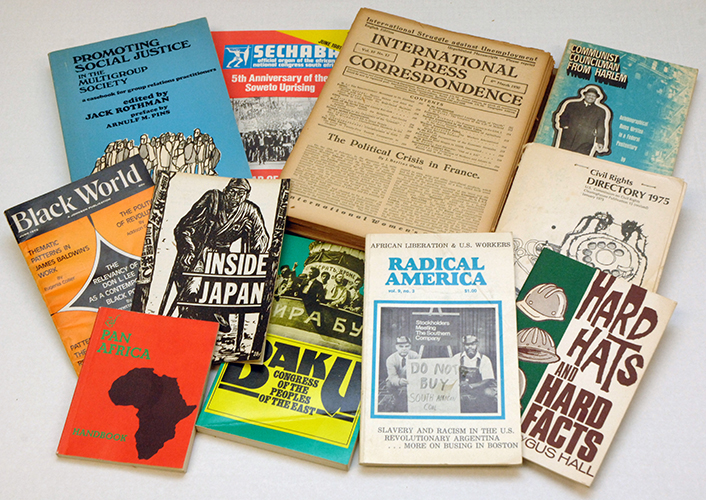
Did you discover any particular items within the archive that led to unexpected encounters or connections?
An unexpected connection was learning that Forman had worked with human rights activist Ella Baker. They both advocated for empowering the average person to become involved in the governance of their community. They did not believe in charismatic leadership, for if the charismatic leader is removed the work towards social improvement often ends with the leader. If people do not have a say in the laws, land, and resources in their community; they will be controlled by other people who don’t necessarily have their best interests at heart.
Forman was trained as a journalist and wrote several non-fiction books including: High Tide of Black Resistance; Sammy Younge Jr.: The First Black College Student to Die in the Black Liberation Movement; The Making Of Black Revolutionaries, so it was a pleasant surprise to realize that Forman also did fictional writing and wrote short stories.
In addition to conceiving, directing, and choreographing Action Songs/Protest Dances you also commissioned five original songs for the production. What was the process of collaboration with the contributing composers?
The dancers, composers, and I reside in different cities, New Orleans, Albany, New York City, and we started working on Action Songs/Protest Dances during the pandemic, so being able to connect through zoom, and work online was essential. I worked with student interns Kathreena Bunch and Paolo Cecilia Silva in compiling a dossier about James Forman based on information in the library archives. It included his bio, links to his writings, and quotes by Forman. The dossier was shared with the creative team and it was a springboard for discussions. Several quotes became the lyrical inspiration for the songs.
The process of creating the songs was very collaborative. Each composer was paired with two dancers and we had several meetings where we discussed James Forman, actions that he was involved with, and current social justice issues that we want to draw attention to. What was important for the creative process is to identify what was resonating with the composers and dancers, and especially what the dancers were invested in embodying.
In 1969 Forman wrote “The Black Manifesto”, which is an expression of rebellion rooted in the despair of a people who had given up hope of “integrating” into the mainstream socioeconomic systems and structures in America. It demanded that Protestant and Jewish organizations pay $500 million in reparations for crimes perpetrated against generations of blacks during slavery. Over 40’s years later America still has not come to terms with the legacy of enslavement, and how to pay reparations.
Composer Taina Asili was paired with Brittany Stewart who is a Queens College Dance Alumni. For the project, I am integrating three current QC Students, three QC Dance Alumni, and two professional Dancers with my company DELIRIOUS Dances. What resonated with Brittany is issues connected to financial literacy for the Black community as well as issues of wellness and Black Joy. Taina wrote “Reparations” a joyous song about the need, the demand for reparations.
Another issue that was identified was decriminalizing sex work. We met with members of Sex Workers Outreach Project who explained why they are advocating for decriminalization and not legalization; and with Carol Leigh (aka Scarlot Harlot ) who in 1978 coined the term “sex worker”. We are still working on decrim song, as we need more time to connect with people involved in the advocacy to decriminalize sex work, to clarify who we are writing the song for, is it a song that is a rallying cry for sex workers to be sung and danced at rallies; or is it a song and dance to educate people about why decrim needs to happen.
Since the creative process for the songs was entirely virtual, I have not met composers Spirit McIntyre and Taina Asili in person. I’m incredibly excited for Thursday, November 10 which is when the composers, singers, musicians, and dancers are physically coming together for the first time!
This production is the result of your involvement in the inaugural Kupferberg Arts Incubator. As an artist residency initiative to support and advance the work of artists of color what was your experience producing Action Songs/Protest Dances within this context?
This question makes me think of how the US Supreme Court currently has several cases that are challenging the need for affirmative action. If education institutions remove affirmative action, then they also need to remove the practice of legacy. I also think of writer Toni Morrison who stated,
“The function, the very serious function of racism is distraction. It keeps you from doing your work. It keeps you explaining, over and over again, your reason for being. Somebody says you have no language and you spend twenty years proving that you do. Somebody says your head isn’t shaped properly so you have scientists working on the fact that it is. Somebody says you have no art, so you dredge that up. Somebody says you have no kingdoms, so you dredge that up. None of this is necessary. There will always be one more thing.”
That being said, the experience of producing Action Songs/Protest Dances has been joyous. A give and take of listening, discussing, and dream-storming with an incredibly talented, smart, and generous gathering of artists.
I started teaching at Queens College in 2010, which is also when the Rosenthal Library acquired James Forman’s personal papers. I was incredibly excited as James Forman was the first person I heard criticize capitalism as an exploitative economic system. I remember feeling shocked, as I grew up playing monopoly and believing that capitalism was good and the “American Way”. Since 2010 I’ve been wondering how I can lift up James Forman’s voice, work, advocacy and sacrifices during the Civil Rights movement in the 1960’s. Then in 2020, the pandemic happened, followed by the murder of Breonna Taylor and George Floyd. I began wondering how as a choreographer I can engage with the protests that were happening across the nation and help address injustices in America. The Kupferberg Center for the Arts Incubator provided the opportunity to create Action Songs/Protest Dances, which celebrate the life and words of James Forman; and through music and dance advocate for America to be a truly great nation.
Action Songs/Protest Dances premieres at the Kupferberg Center for the Arts Saturday, November 12th at 8pm and Sunday, November 13th at 3pm. Tickets are $20. Queens College students receive a 50% discount.
For more information on the performance visit the Kupferberg Center for the Arts website.
Share Post:
